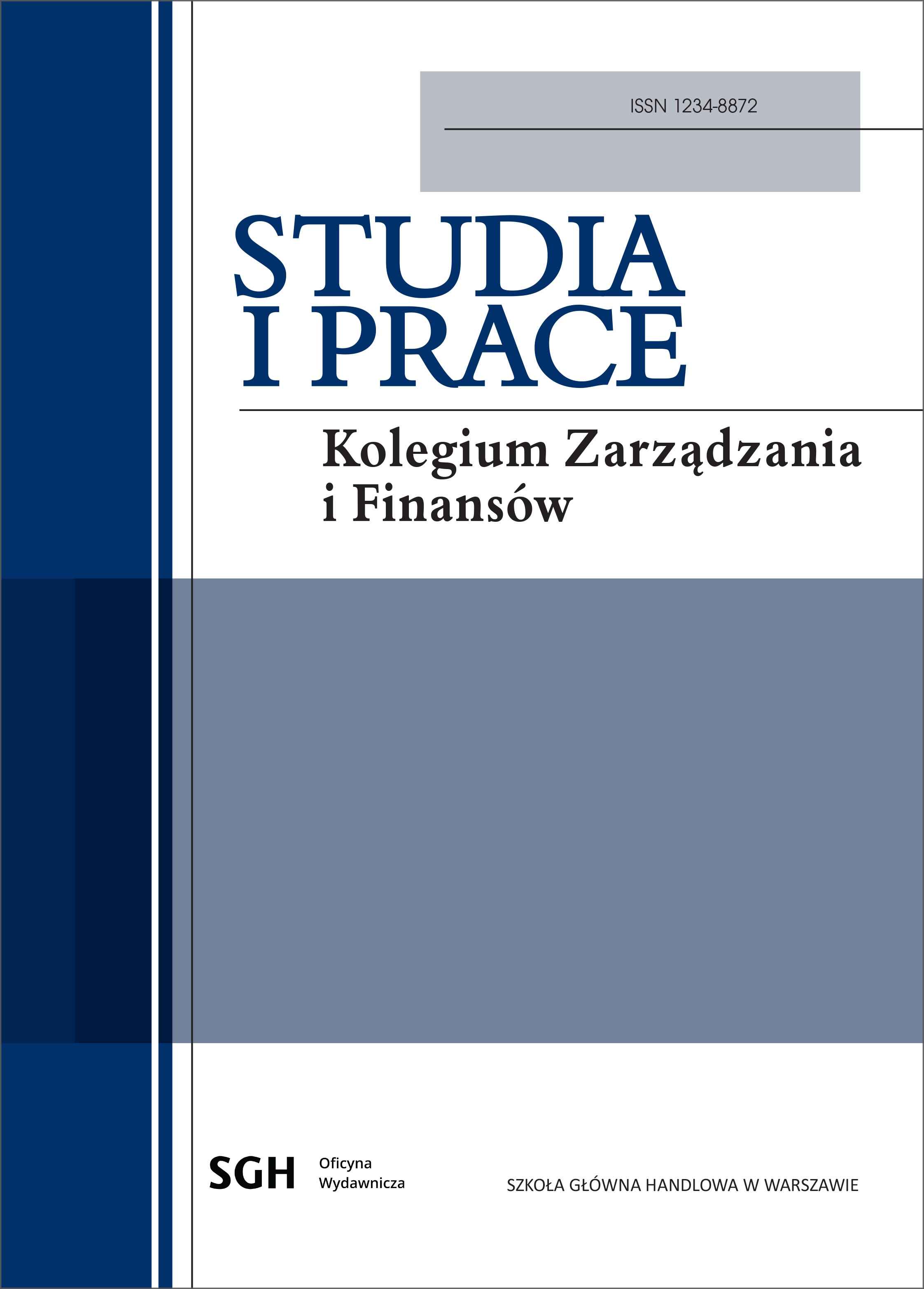Crisis-Proof Innovation: Organizational Culture, Planning and Innovation of Polish Companies in the Age of the Pandemic
DOI:
https://doi.org/10.33119/SIP.2022.184.8Keywords:
innovation, innovativeness, organizational culture, resilience of an organization, planningAbstract
In the face of the crisis triggered by the COVID-19 pandemic, two dimensions of corporate activity have become a particularly prominent subject of public and academic debate. The first is the transformation of organizational cultures stemming from the changes in work organization. The second is the shortening of the planning perspective in corporate activities caused by the uncertainty of the business environment. In this article, we analyse the dynamics of transformations in organizational cultures and action plans of Polish companies as well as how they link with resilience to the pandemic crisis in the area of innovation. The source of data are the results of a panel study conducted by us and the Human Capital Balance team on a representative sample of Polish medium and large enterprises. We show that, contrary to predictions relying on theoretical perspectives emphasising the importance of flexibility of organizational cultures and structures for innovativeness, in times of crisis companies with a stable hierarchical culture and stable action plans have better chance of introducing innovations.
Downloads
References
2. Ansoff H. I. [1991], Critique of Henry Mintzberg’s ‘The design school: reconsidering the basic premises of strategic management’, „Strategic Management Journal”, 12 (6), s. 449–461.
3. Archibugi D., Filippetti A., Frenz M. [2013], Economic crisis and innovation: is destruction prevailing over accumulation?, „Research Policy”, 42 (2), s. 303–314.
4. Blackburn S., LaBerge L., O’Toole C., Schneider J. [2020], Digital strategy in a time of crisis, „McKinsey Digital”, April 22.
5. Cameron K. S., Quinn R. E. [2011], Diagnosing and changing organizational culture: Based on the competing values framework, Jossey-Bass, San Francisco.
6. Chatman J. A., O’Reilly C. A. [2016], Paradigm lost: Reinvigorating the study of organizational culture, „Research in Organizational Behavior”, 36, s. 199–224.
7. Czarnik S., Górniak J., Jelonek M., Kasparek K., Kocór M., Lisek K., Prokopowicz P., Worek B. [2021], Bilans Kapitału Ludzkiego. Raport podsumowujący wyniki badań 2019–2020, PARP, Warszawa.
8. Diebolt C., Hippe R. [2019], The long-run impact of human capital on innovation and economic development in the regions of Europe, „Applied Economics”, 51 (5), s. 542–563.
9. Delmar F., Shane S. [2003], Does business planning facilitate the development of new ventures?, „Strategic Management Journal”, 24 (12), s. 1165–1185.
10. Hartnell C. A., Ou A. Y., Kinicki A. [2011], Organizational culture and organizational effectiveness: a meta-analytic investigation of the competing values framework’s theoretical suppositions, „Journal of Applied Psychology, 96 (4), s. 677.
11. Kleinknecht A. [1987], Innovation patterns in crisis and prosperity: Schumpeter’s long cycle reconsidered, Macmillan, London.
12. March J. G. [1991], Exploration and exploitation in organizational learning, „Organization Science”, 2 (1), s. 71–87.
13. Mintzberg H., Waters J. A. [1985], Of strategies, deliberate, and emergent, „Strategic Management Journal” 6 (3), s. 257–272.
14. Porter M. E. [1990], The competitive advantage of nations, „Harvard Business Review”, 68 (2), s. 73–93.
15. Rosenbusch N., Brinckmann J., Bausch A. [2011], Is innovation always beneficial? A metaanalysis of the relationship between innovation and performance in SMEs, „Journal of Business Venturing”, 26 (4), s. 441–457.
16. Vesper K. H. [1993], New venture mechanics, Prentice Hall, Englewood Cliffs, N. J.









